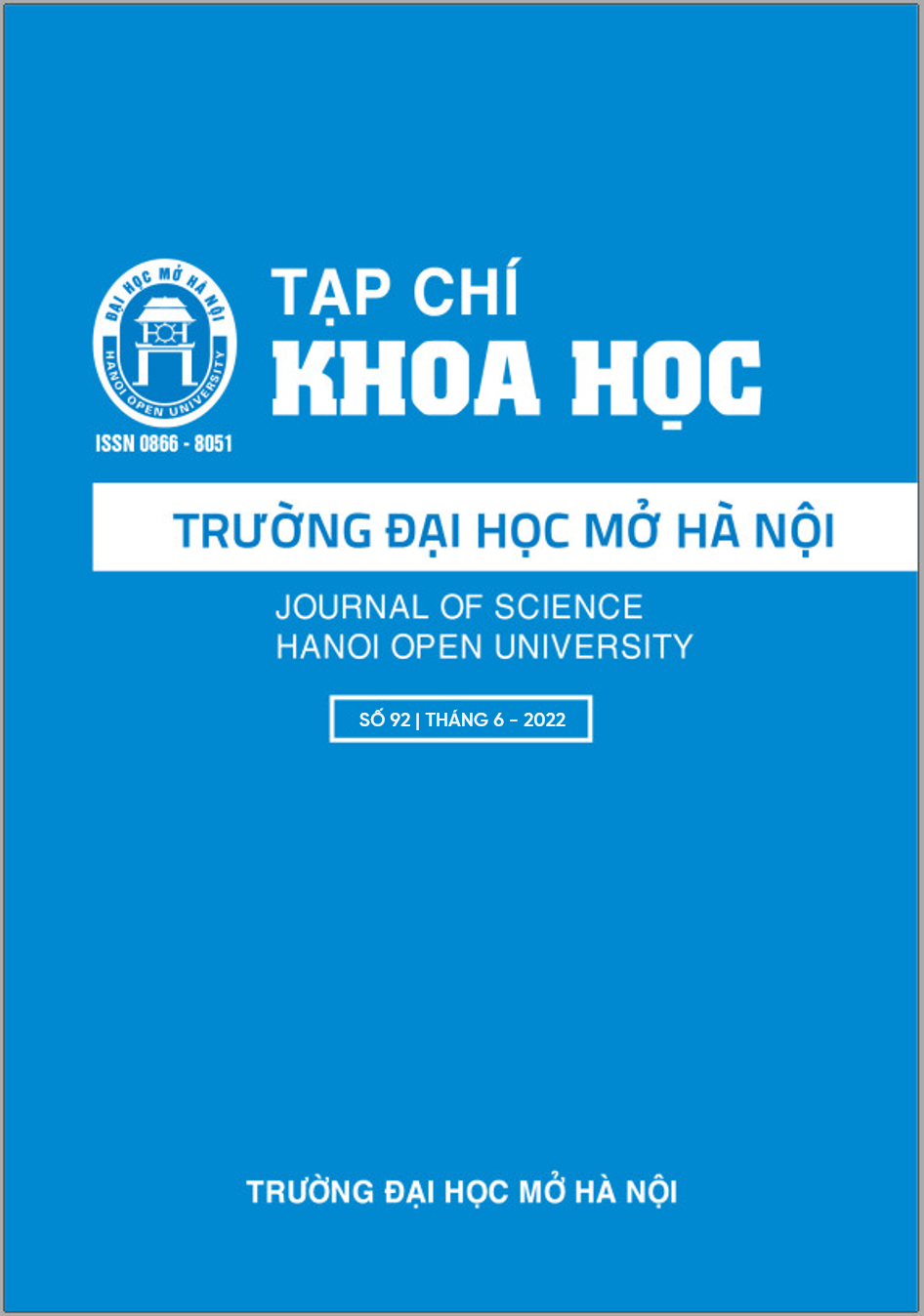PROPOSING PROJECT-BASED TEACHING METHODS IN TEACHING THE SUBJECT INTERCULTURAL COMMUNICATION AT THE FACULTY OF ENGLISH, HANOI OPEN UNIVERSITY
Keywords:
project-based teaching method, student-presentation method, intercultural communication, teaching techniques, motivational factorsAbstract
The purpose of the article is to propose improvements to the teaching and learning method of the subject Intercultural Communication at the Faculty of English, Hanoi Open University through the application of the project-based teaching method, in order to analyze the advantages and disadvantages of each teaching method. The article uses analytical and quantitative methods to describe the theoretical framework and to monitor the statistical data of the paper. Based on the survey results from 100 lecturers and students (course 2020-2024) who have studied the subject Intercultural Communication at the Faculty of English, Hanoi Open University in the academic year 2021-2022, the article proposes applying the project-based teaching method in teaching the subject Intercultural Communication at the Faculty of English, Hanoi Open University to improve the effectiveness of the teaching and learning process. With the application of the project teaching method, under the guidance of the teacher, the students carry out specific research tasks, collect data from life, and constructs knowledge, which is also the necesity for their future development.
References
Tiếng Việt
[1]. Tạ Tiến Hùng (2000). Văn hóa trong giảng dạy ngoại ngữ - Giao lưu văn hóa Việt nam - Khu vực – Thế giới. Đề tài nghiên cứu cấp bộ.
[2]. Phan Thị Thu Hương (2013). Học ngoại ngữ từ góc độ xuyên văn hóa. Báo Giáo dục thời đại
[3]. Nguyễn Quang (2008). Văn hóa, giao thoa văn hóa và giảng dạy ngoại ngữ. Tạp chí Khoa học ĐHQGHN, Ngoại ngữ 24 (2008) 69-85.
[4]. Nguyễn Đại Cồ Việt (2017). Giảng dạy môn Giao tiếp liên văn hóa bằng phương pháp dạy học qua theo dự án: Trường hợp giao tiếp liên văn hóa Việt – Trung. Tạp chí Nghiên cứu Nước ngoài, Tập 33, Số 5 (2017) 164-172.
[5]. Lê Thị Vy, Lê Phương Thảo, Lê Thị Ánh Tuyết, Nguyễn Hoàng Phương Linh (2020). Quan điểm của sinh viên khoa tiếng Anh, trường Đại học Mở Hà Nội đối với việc học môn Giao thoa văn hoá. Tạp chí Khoa học Trường Đại học Mở Hà Nội.
Tiếng Anh
[6]. Boss, S and Larmer,J (2018). Project- based Teaching: How to Create
[7]. Diehl, W., Grobe, T., Lopez, H., & Cabral, C. (1999). Project-based Learning: A Strategy for Teaching and Learning. Boston, MA: Center for Youth Development and Education, Corporation for Business, Work, and Learning
[8]. Fried-Booth, D.L. (2012). Project Work. Oxford: Oxford University Press
[9]. Haines, S. (1989). Projects for the EFL Classroom. Edinburgh: Nelson.
[10]. Gallacher, L. (2004). Project Work with Teenagers. Retrieved December 21, 2004, from British Council Teaching English website: http://www.teachingenglish.org.uk/ think/methodology/project-work.shtml.
[11]. Moss, D. & Van Duzer, C. (1998). Project-based Learning for Adult English Language Learners. National Clearinghouse for ESL Literacy Education Washington D.C.
[12]. Thomas, J.W. (2000). A Review of Research on Project-based Learning. Retrieved on 23 September 2018 from website of Autodesk Foundation at: http:// www.bobpearlman.org/BestPractices/ PBL- Research.pdf.
